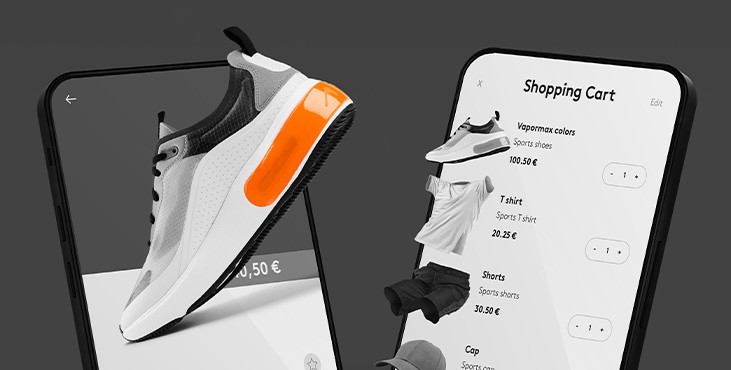
How to Choose the Right Type of Mobile App: Native, Web or Hybrid
The three main methods for developing mobile apps are as follows. A web app, a hybrid app, or a native app can all be made (also named a browser-based app). Here, we'll examine the benefits and drawbacks of each choice and discuss how to select the ideal course of action for your projects.
What is a Native App?
An exclusive mobile operating system is required to run a native app. Other mobile operating systems won't be able to run it. So, for instance, if you were to create a native iOS app, you would do so in Swift. Native apps typically have easy access to all of the device's features, and if they are created properly, they are more likely to perform flawlessly on the target device. These are their main benefits.
There is a cost associated with this, though. On a device running a different operating system, a native app cannot be used. So, if you want your app to work on both iOS and Android, you will need to create two separate versions of the app, one for each platform. The development process may become slower and more expensive as a result.
When going the native route, many businesses will create their app for just one operating system. They will go back and redesign the app for other operating systems if it is effective in that context.
What is a Hybrid App?
A hybrid app operates across several platforms. It is built in a single, industry-standard programming language (such C# or a hybrid of HTML5 and JavaScript), which is then translated into a platform-specific executable. Device-specific interactions will typically be managed by the use of plugins for that operating system.
The main benefit of hybrid apps is their ability to support various operating systems at a lower cost than many native apps. Users won't typically be able to tell if an app is native or hybrid for a well-developed app. Users typically don't care how your app was created; they only care that it functions properly on their device and fulfills their expectations.
The creation of hybrid apps has drawbacks. If the program requires intricate device interaction, it can pose significant difficulties because plugins can only do so much on this front. A hybrid program's maintenance expenses could be more expensive than those for a native application.
What is a Web App?
A website that can provide features comparable to those of an app is known as a web app or browser-based app. In reality, with a little imagination, you can minimize the differences and create a web app such that it resembles native apps in both appearance and functionality. You can use a variety of techniques to build effective mobile websites, including responsive and adaptive design.
The inability to distribute apps through app stores is a major negative of responsive websites; if you want to sell app downloads, this can be a deal-breaker. Users must enter a URL to access them.
In order to access the website, the user will need need ongoing connectivity. In highly developed areas where mobile broadband is almost universal, this might not be a concern, but in developing markets, it might be a big one.
Currently, the typical user uses up to 40 applications each month, and 400,000+ new apps are released each year. From the user's perspective, having this many apps can be overwhelming. If there are enough responsive mobile websites, customers may stop using applications and switch back to using individual websites for their online needs. Apps might then just serve as "launchers" for mobile websites.
The Take-Away
To provide the best user experience for your mobile app, pick the appropriate development strategy. Understanding the distinctions between hybrid, native, and responsive design will help you choose the best option for your project.
You'll need to design unique apps for iOS, Android, etc. because native apps are "native" to just one platform. Any device, regardless of operating system, can use hybrid ones. App stores allow for the distribution and installation of both native and hybrid software on devices. Web apps, on the other hand, run through a browser and cannot be downloaded to a device.
Tell us what you think
By clicking 'Submit', you agree to Privacy Policy and authorise our staff to contact you. You are liable under the Personal Data Protection Act if you key in false personal data or other people’s personal data.
offers and news
